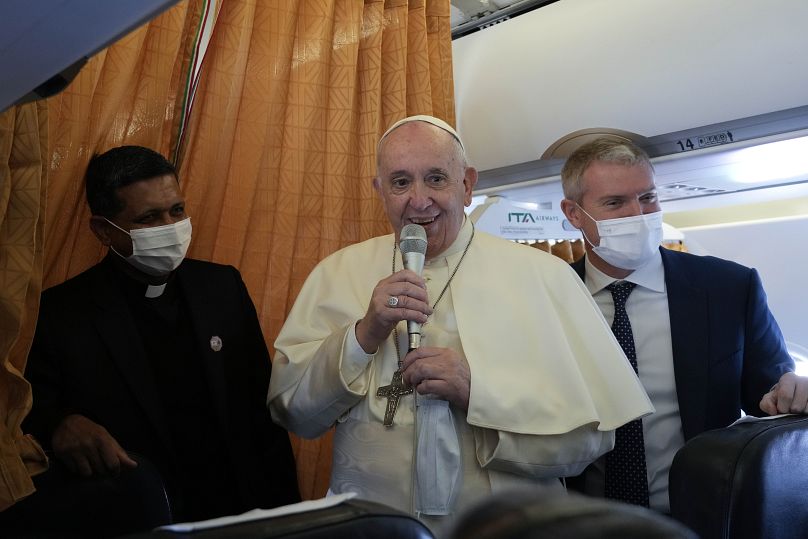Pope Francis is expected to raise the issue of migration when he arrives in Cyprus on Thursday on the first leg of the trip.
Pope Francis has arrived in Cyprus for an official five-day visit to the Mediterranean island and Greece.
The trip will draw new attention to the plight of migrants on Europe’s borders and the disconnect between countries and the Vatican.
The Pope has called for EU member states to welcome and integrate migrants, but front-line governments have been increasingly unwilling.
Francis boarded a plane in Rome after meeting a group of asylum-seekers at the Vatican and another group near Fiumicino International Airport.
The visit will also take him back to Lesbos, where he made headlines in 2016 when he brought a dozen Syrian migrants home with him from a refugee camp on the Greek island.
The Vatican hasn’t ruled out that more migrants from Lesbos might be relocated following Francis’ visit this time around.
Cyprus has seen a spike in migrant arrivals this year — a 38% increase in the first 10 months compared to all of last year.
The eastern Mediterranean island has formally asked the European Commission to let it stop processing asylum claims altogether.
Pope Francis is expected to stay at the Vatican nunciature in the UN-controlled buffer zone that divides the Greek Cypriot south and the breakaway Turkish Cypriot north.
Cyprus was split in 1974 when Turkey invaded following a coup by supporters of a union with Greece. Only Turkey recognises the Turkish Cypriot declaration of independence.
UN-led efforts to resume reunification talks are proceeding at a snails-pace amid a Greek Cypriot rejection of Turkish Cypriot call for a two-state deal.
The Cypriot government claims that Turkey systematically sends asylum-seekers to the breakaway north so that they then pressure the island’s southern government.
Francis is also meeting with the Orthodox leaders in both Cyprus and Greece, as well as the small local Catholic communities in each country.
The visit comes amid new pandemic travel bans across much of the world thanks to the Omicron variant of COVID-19 first detected in South Africa.












